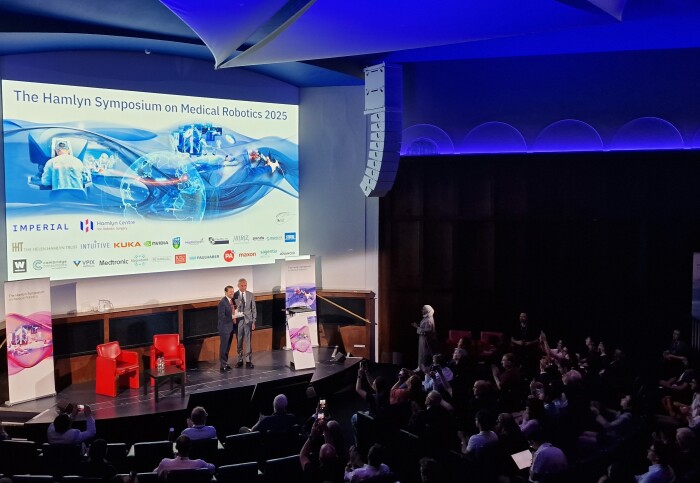Arming ourselves against an emerging pathogen also requires an understanding of how the body’s immune system reacts and responds; this provides critical insight into disease onset and why some people get sick while others don’t. It also informs vaccine and drug discovery.
Experts working in this area:
- Professor Danny Altmann: Global health and infectious disease immunology; severe bacterial infections (Zika virus and Chikungunya virus); emergent arboviruses and climate change. Example (in Covid): Immunity and immunology in SARS-CoV-2 and Long Covid; cross-reactive immune repertoires between SARS-CoV-2 and emergent, pandemic-threat bat coronaviruses.
- Professor Joseph Boyle: Inflammatory aspects of vascular damage, vascular inflammation and thrombosis.
- Professor Rosemary Boyton: Understanding host immune response to bacterial, viral and fungal infections and following vaccination; T and B cell antigens / epitopes; correlates of protection; host immunity in vaccine studies. Example (in Covid): Immunity and immunology in SARS-CoV-2 and Long Covid.
- Professor Chris Chiu: Pathogenesis and protective immunity in human respiratory viral infections, including respiratory syncytial virus (RSV), influenza and SARS-CoV-2. Example (in Covid): Chief Investigator for world's first human challenges to study SARS-CoV-2.
- Professor Aubrey Cunnington: Host-pathogen interactions in severe paediatric infections.
- Dr Margarita Dominguez-Villar: Immunology (innate and adaptive immune response). Example (in Covid): SARS-CoV-2 in healthy individuals and people with autoimmunity.
- Dr Malick Gibani: Characterisation of mucosal secretory IgA responses to Salmonella typhimurium infection.
- Professor Nick Grassly: Vaccine-induced immune correlates of protection.
- Dr Carolina Herrera: Mucosal infection and inflammation. Example (in Covid): Mucosal and systemic responses to SARS-CoV-2 antigen.
- Professor Cecilia Johansson: Mucosal immunology. Example (in Covid):Innate and adaptive immune responses to respiratory viruses including SARS-CoV-2.
- Professor Nick Jones: Immune ageing.
- Professor Paul Kellam: Antibody response for disease characterisation; monoclonal antibody drug design and vaccines.
- Professor Ajit Lalvani: Immunology of respiratory pathogens and determinants of transmission. Example (in Covid): Onset and window of SARS-CoV-2 infectiousness and temporal correlation with symptom onset.
- Professor Clare Lloyd: Effects of viral exacerbations on airway inflammation and remodelling. Examples (in Covid): Understanding why children are at reduced risk of disease; immune cell regulation in the airways of individuals with ongoing post-COVID-19 respiratory disease.
- Dr Laura Martin Sancho: Systems biology approaches to reveal host defences and viral evasion mechanisms. Example (in Covid): SARS-CoV-2-host interactions.
- Dr Mahdi Moradi Marjaneh: Bioinformatics, transcriptomics; host-pathogen interaction. Example (in Covid): Epithelial transcriptomes to identify mechanisms associated with control of SARS-CoV-2 viral load in the upper respiratory tract.
- Dr Masahiro Ono: T-cell regulation, activation, and memory in infections; temporal changes of T-cell activities in vivo. Example (in Covid): T-cell dysregulation in COVID-19.
- Professor Peter Openshaw: Pathogenesis and immunology of respiratory viruses with particular focus on mucosal protection and vaccines that might interrupt transmission of infection to others. Example (in Covid): Human challenges to study SARS-CoV-2 immune responses and timeline of immunity.
- Professor Faith Osier: Understanding natural malaria immunity to explore new vaccines.
- Dr Brijesh Patel: Acute respiratory distress syndrome (ARDS): Discovering treatable traits; examining biological pathways induced in ARDS leading to aberrant pulmonary repair; cell death and necroinflammatory propagation of inflammation.
- Dr Anna Reed: Respiratory and transplant medicine. Example (in Covid): Impaired humoral and cellular responses to COVID-19 vaccine in heart and lung transplant recipients.
- Dr Vanessa Sancho Shimizu: Genetic basis of response to infections. Example (in Covid): Genetic basis for severe disease associated with COVID-19 in children.
- Dr Nishel Shah: Immunology and pregnancy. Example (in Covid): SARS-CoV-2 and pregnancy.
- Professor Shiranee Sriskandan: Evasion of the innate immune response.
- Dr Lucy Thorne: Interactions between emerging viruses and innate immune system related to emerging virus transmission, pandemic potential, and pathogenesis. Example: Immune escape of SARS-CoV-2 variants.
- Dr Ryan Thwaites: Respiratory immunology; human challenges studies. Example (in Covid): Immunopathogenic response to SARS-CoV-2 infection
- Dr Elizabeth Whittaker: Immune responses to infectious diseases, biomarkers, vaccinations; susceptibility to viral infection in the mother and child.
- Dr Michelle Willicombe: Clinical sciences, immunology. Example (in Covid): Understanding the impact of immunosuppression on COVID-19 infections and responses to vaccines.
